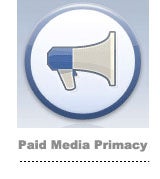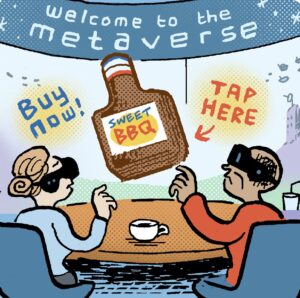 With over 260 companies in its Preferred Marketing Developer program, Facebook has its hands full managing partners. Yesterday, in an apparent attempt to simplify the program while also extracting more revenue from it, Facebook announced significant changes to how it handles badge requests. (AdExchanger story)
With over 260 companies in its Preferred Marketing Developer program, Facebook has its hands full managing partners. Yesterday, in an apparent attempt to simplify the program while also extracting more revenue from it, Facebook announced significant changes to how it handles badge requests. (AdExchanger story)
The main things to know: (a) New partners will be held to a high standard of knowledge of and advocacy for Facebook’s paid media products, and (b) PMD badges will only be granted if you know someone internally, i.e. fewer badges will be handed out.
The changes will no doubt make Facebook’s life easier, but how do the PMDs feel about it? We asked a few.
Click above or scroll for their answers.
Jeff Dachis, CEO, Dachis Group (Pages, Apps, Insights badges)
“We see this as an incredibly healthy move on the part of Facebook to correct a damaging trend that emerged over the last few years. Facebook’s explosive growth in users since the launch of the PMD program triggered a parallel explosion in the number of PMDs on the site, the result has been diminishing quality among the firms that have the designation. This drop in quality sorely needed to be addressed.
There are a few trends here:
- The PMD group has grown too large without sufficient quality controls. Facebook in 2009 first launched the PDC with only 14 vendors. These were all hand selected for their expertise on the platform. If you fast forward to 2013, you will see that there are now OVER 260 members with PMD designation.
- Facebook has become a significantly more complex environment for brands and their developers. For instance, there are now more than 12 types of sponsored stories alone.
- The result is that there are a huge number of PMDs who have the designation, but lack the core skills to build quality products and programs on top of the Facebook platform.
What is really going on is an attempt to ‘raise the bar.’ Facebook is becoming increasingly dependent on the PMD group to make it easy for brands to work with the platform. They need quality PMDs to keep the revenue flowing and fulfill their IPO. In order for it all to work, PMDs have to be verifiably capable of working with all three critical components of the Facebook platform, and that includes: owned, earned and paid media.”
Don Mathis, CEO, Kinetic Social (Ads API badge)
“This is one more step in FB’s ongoing effort to improve the ad experience. They are raising the bar here, and that’s a good thing for the serious players … less noise in the ecosystem, more focus on actually adding value.
A potential concern would be with the emphasis on inside referrals, which could be good or bad. The current PMD program already seems to be heavily weighted in this direction … for the smaller players that have superior products but less penetration into the internal world of FB, this represents a hurdle which could work at cross-purposes with improving the program.
Bottom line: overall, we think this is good for the PMD program. It represents FB putting increasing emphasis on working with partners with real technology and demonstrable value-add, and who can guide brands on how to fully harness FB. It should help thin out a glutted space (have you seen the Lumascape recently??) and, in turn, make it easier for marketers to make a PMD choice based on skill. It probably isn’t such a good thing for the newbies with no FB relationship, or for the established PMDs who have pursued a ‘reseller’ business model.”
Rob Leathern, CEO, Optimal Social (Insights and Ads API badges)
“We currently have two Facebook PMD badges, but the Ads badge was and is our foremost priority. Integrating with the Facebook Ads API is difficult to do well, and we have our own Optimal APIs that non-Ads-badged PMDs can use to drive Facebook ad spend without having to build all of that functionality and we are having productive interactions with many of them. Facebook can and should prioritize partnerships that drive engagement with their platform and ads revenue; and it doesn’t look like they’re favoring one to the exclusion of the other, but they might be emphasizing the importance of being a revenue contributor in their ecosystem.”













